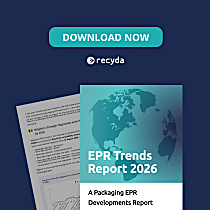British Plastics Federation seminar redoubles calls for recycling infrastructure development

30 Mar 2023 --- The British Plastics Federation’s (BPF) seminar on The Challenges of Incorporating Recycled Content in Plastics Packaging 2023 made it clear that there is work being done across the industry to address plastic supply chain concerns, according to BPF director of plastics and flexible packaging, Brian Lodge.
Building more recycling infrastructure is going to be important to obtain the capacity the UK needs and the industry would like guaranteed revenue raised by the Plastics Packaging Tax and other related reforms to be used to develop this, stresses Lodge.
When the tax entered enforcement one year ago, the BPF criticized the government treasury for refusing to guarantee the levy would be used to develop the industry from which it is raised.

The half-day online seminar provided a detailed insight into the latest developments in incorporating recycled content. It explored legislative updates, new developments and included a panel discussion on measurement and verification.
“Having a variety of speakers from different backgrounds and geographies made the seminar very interesting for all those that attended. It showed the breadth of the topic and how it affects the whole supply chain,” Lodge tells PackagingInsights.
 Brian Lodge, BPF’s director of plastics and flexible packaging.Demand outstrips supply
Brian Lodge, BPF’s director of plastics and flexible packaging.Demand outstrips supply
The event provided an overview of the various technological innovations to certify, verify and quantify recycled content. It contained information that could interest stakeholders in the supply chain, including processors, brands, retailers, raw material suppliers and recyclers.
The speakers at the seminar identified that the big three challenges of incorporating recycled content in plastic packaging are the availability of good quality recycled materials, the inability to use recycled polyolefins in direct food contact applications and the price differential between virgin and recycled polymers.
“The industry is increasing recycling capacity and innovating processes to improve the quality and usability of recycled material, but currently, demand is still outstripping supply. With the implementation of the [Packaging and Packaging Waste Regulation] PPWR in Europe, which has mandatory recycled content as a key aim, the situation may become more challenging in the short term,” warns Lodge.
“We had a presentation from Ed Kosior from Nextek showing how it can clean recycled PP to a standard that meets EFSA direct food contact requirements. This would be a big boost to enable recycled content to be used in packaging that, up to now, has not been possible. Changes in EFSA rules that allow novel technologies will help this,” he stresses.
Overcoming recycled material challenges Experts are unable to predict the ultimate effect that political developments may have on the industry’s progress.
Experts are unable to predict the ultimate effect that political developments may have on the industry’s progress.
Iris Poon from S&P Global gave insights into the fluctuating costs of both recycled plastics and virgin polymers and said that ultimately they will converge.
“Other factors like the European PPWR, as illustrated by Silvia Freni Sterrantini from EuPC, which is proposing to include provisions for mandatory recycled content for plastic packaging, may influence this [material convergence] in the future,” explains Lodge.
Lodge continues that it was interesting to see the work of two academic institutions, Dr. Thomas McDonald from Liverpool University and Dr. Thomas Bennet from Manchester University, showing quite different projects that are contributing to the understanding of recycled material performance and tracking, which can also help the industry.
At the seminar, Jonathan Moore from WRAP demonstrated the progress that is being made toward target number four of the UK Plastic Packaging Pact. It showed that the industry is engaging with the problem and making progress toward achieving the average 30% recycled content target.
Living in unpredictable times
Lodge stresses that well-conceived and delivered government interventions – that accommodate the industry’s concerns – such as the Plastics Packaging Tax, deposit return schemes and consistent collection schemes have the potential to help increase the use of recycled content.
“We also got a view from Anthony Peyton on the state of flexible plastic recycling in Australia. He braved a one o’clock in the morning time slot to tell us about Australia’s failures and successes in recycling more plastic and outlined the lessons we can learn in Europe.”
The overall view at the seminar was optimistic that the various different programs will have a significant effect in increasing recycled content and reducing plastic waste, says Lodge.
“We are, however, unable to predict the ultimate effect that things like the war in Ukraine, changing political parties (and agendas) or innovations that come to the market may have on the progress that has been made – but the array of different workstreams was impressive,” he concludes.
By Natalie Schwertheim











